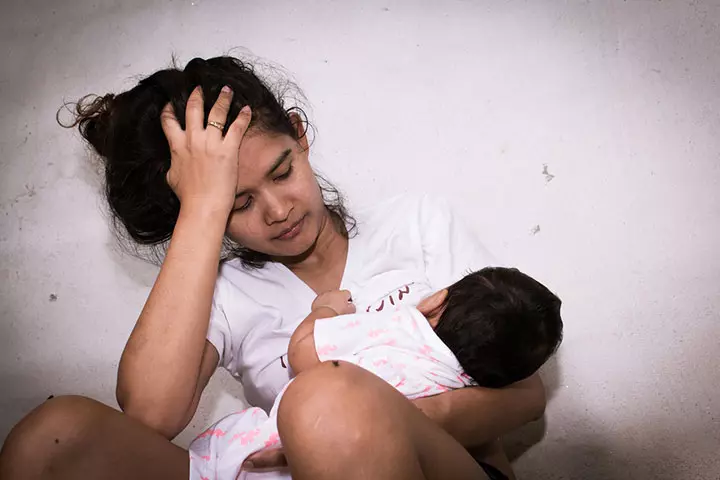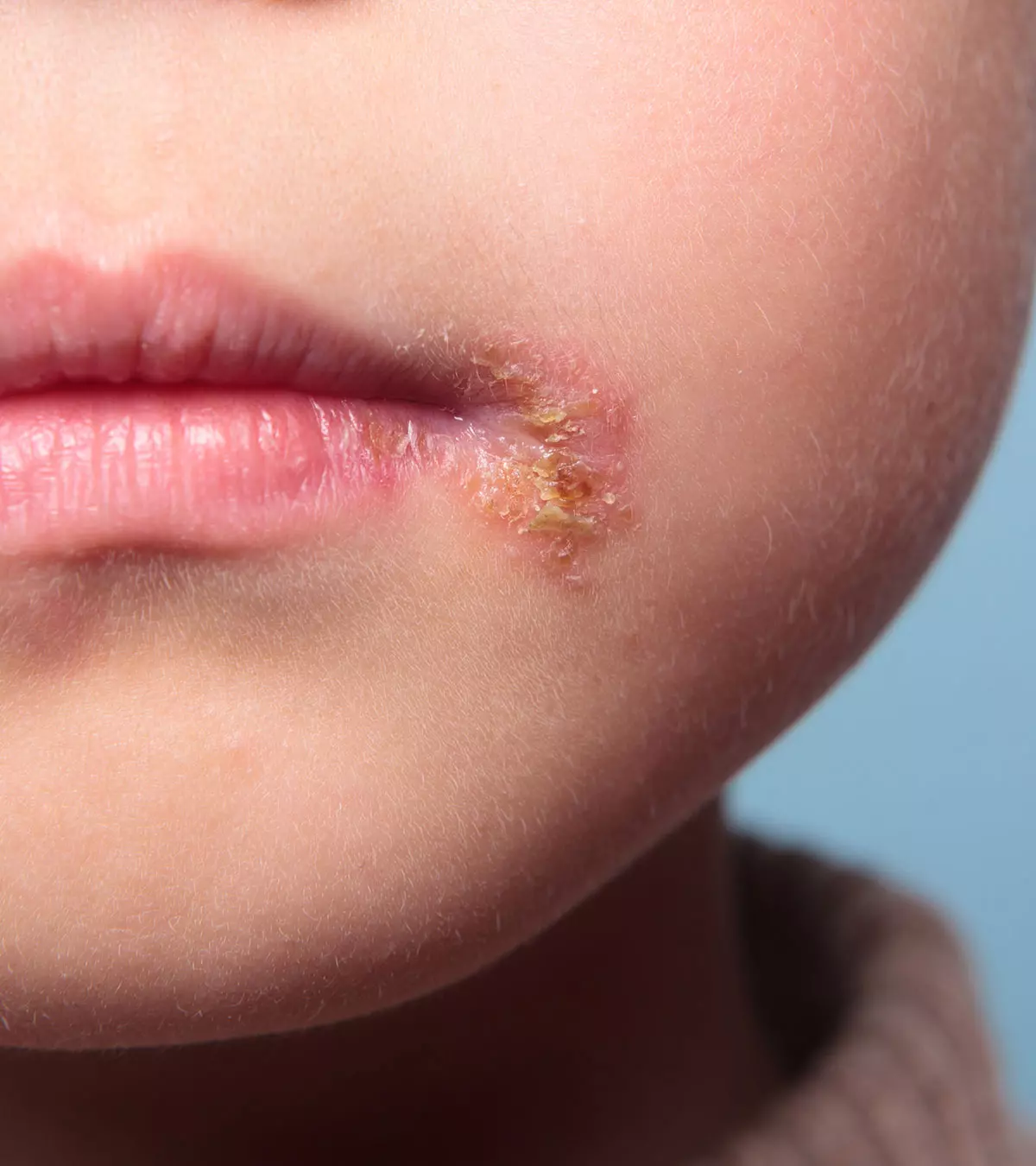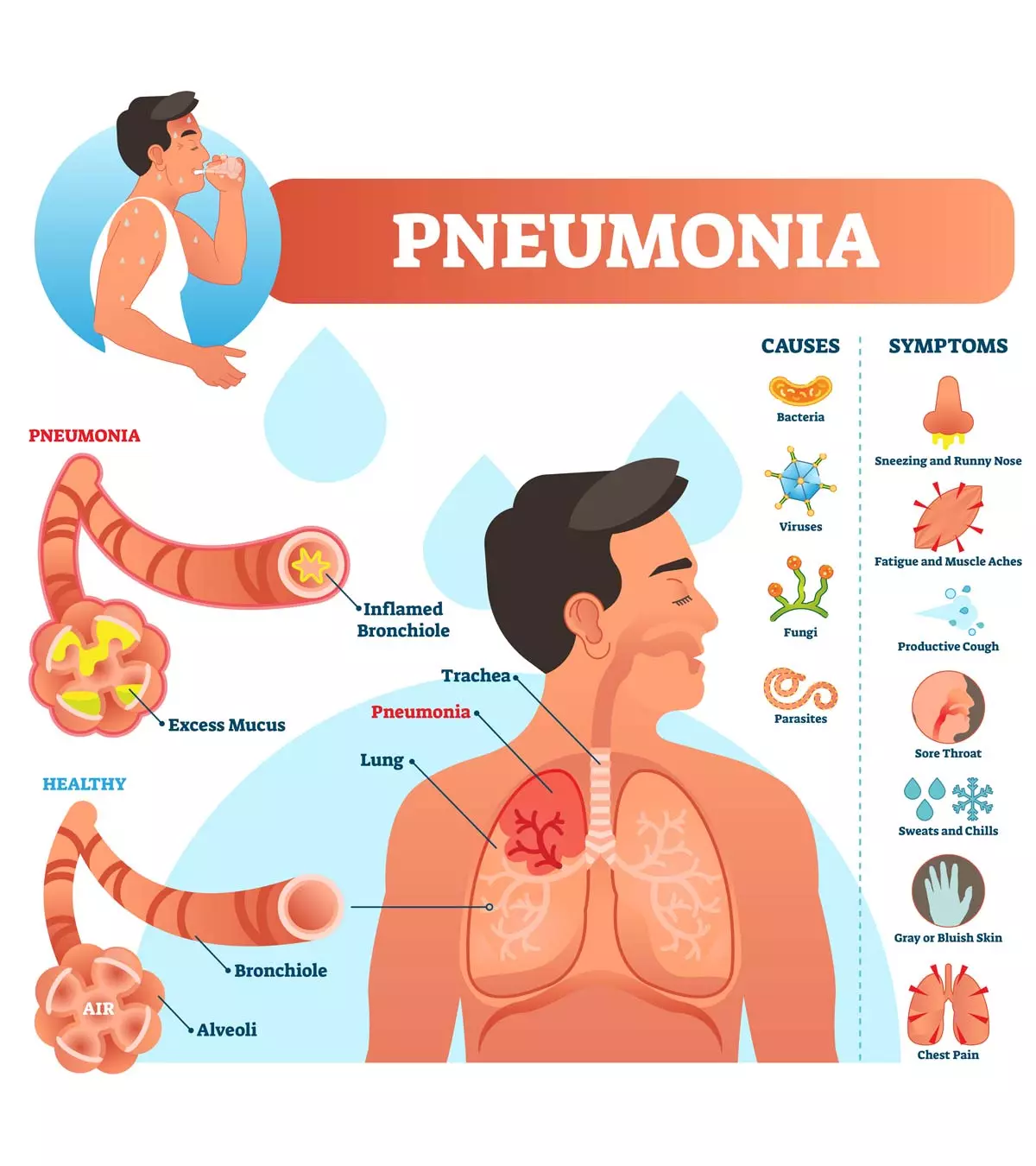
Image: Shutterstock

Teenage pregnancies have long-term effects on a teen’s physical, social, and mental well-being. Teenage abortions are not uncommon. However, with the recent changes in laws, abortions are no longer considered a constitutional right in the US, and each state has its own policy to regulate them. Read this post to know more about the causes of teenage abortions, the importance of adult involvement, and other legal aspects of abortion in the US.
Key Pointers
- Teenagers are allowed to go for abortions without parental notification or guidance in about 15 states as per the current guidelines.
- Early abortion can help achieve the results with minimal intervention.
- If you are unable to get parental consent, you may opt for a judicial bypass.
- Some states may allow abortion without parental consent if the adolescent’s life is at risk or if they are victims of abuse, neglect, incest, or assault.
Can A Teenager Get An Abortion?
Earlier, the US government permitted each person to decide if they wanted to end the pregnancy before around 24 weeks, when the pregnancy becomes viable. However, with the decision that the US supreme court released in the Dobbs v. Jackson Women’s Health Organization case in 2025, abortion is no longer considered a constitutional right (1).
However, it is not a federal ban on abortions, and each state in the country can decide the specific abortion rules. Currently, some states have put a blanket ban on abortions, while others still consider it legal. If one lives in a state where abortion is illegal, one can still travel to the state where it is permitted and get the procedure done.
It is essential to know the state laws before planning an abortion. For instance, some states require approval from one of the parents or an older family member of the teenager, a few states may require consent from both the parents, some require notifying the parents, and some other states excuse the teenager from getting the consent. If you don’t want to involve your parents, then you have the option of ‘judicial bypass.’
(2).
Some states may waive parental involvement requirements if the adolescent is a victim of neglect or abuse or if there is a medical emergency. Nevertheless, all abortion or pregnancy termination providers encourage adolescents to inform their parents for better care and guidance (3).

Image: Shutterstock
Why Do Teens Go For An Abortion?
Around 78% of teen pregnancies are not planned. Nearly 35% of teens who get pregnant choose abortion (4) (5). According to the US Centers for Disease Control and Prevention (CDC) 2025 data, 11.2 abortions per 1,000 women are reported in those aged between 15 and 44 years. While there can be several reasons why a teenage girl would opt for abortion, some common ones include:
- Education or career goals: A teen pregnancy can greatly impact one’s personal life and career aspirations. Teens who get pregnant are more likely to drop out of school than those who do not. If the teen continues with the pregnancy and has insufficient support from the partner or the family, it may also negatively impact the child’s upbringing. Children born to teenage mothers may be more likely to face educational, medical, psychological, and economic disadvantages (5) (6).

Image: Shutterstock
- Lack of support and guidance: Girls who don’t receive advice and support from their families may consider proceeding with abortion, sometimes even with unsafe or illegal abortion techniques. Some teens find it difficult, embarrassing, or scary to share the news with parents and, therefore, may not get the necessary care and support before and after the procedure.
- Social pressure: Adolescent girls who may want to continue their pregnancy and raise a child might get unwanted attention from relatives, friends, and society. This is one of the many reasons why teens choose abortion. They may also experience shaming or bullying from peers.
- Health risks: The body of a teenage girl is still growing. There is a chance that the pregnancy is a health risk when the developing body is burdened with the responsibility of pregnancy and childbirth. Some girls may not feel mentally mature to raise a child.
- Financial and other issues: There could be other reasons, such as the couple not being serious about the relationship or financially strong enough to raise a child. They may have to rely on public assistance to raise the child. Also, the girl could have been a victim of sexual assault.
 Point to consider
Point to consider
Image: Shutterstock
Irrespective of the reason, if you do not want a pregnancy, you may carefully discuss the risk versus the benefits with your healthcare provider and go ahead with the termination of pregnancy. You might be a candidate for oral medication for the initial few weeks of pregnancy, making the process easier and quicker. The longer the pregnancy advances, the higher the risks and costs involved with the abortion procedure.
Community resources are available in each state to support pregnant teenagers in deciding their options, including counseling, foster care, and adoption services to ensure child welfare, particularly in cases of advanced unwanted pregnancy. In general, abortion services are not covered by insurance in the US. Complications of abortion-related procedures are usually rare but can be life-altering and cost-prohibitive.
What Are The Legal Aspects Of Teenage Abortion?
You may be mature and know what is right and wrong for you. But talk to your parents or a trustworthy adult who is likely to provide better care and support.
1. Why is parental guidance required?
Parental guidance, care, and support can greatly impact how the teen faces, recovers, and learns from the abortion. Parental involvement can help the teen benefit from adult wisdom, life experiences, financial assistance, and emotional support (7).
However, if you think that telling about the pregnancy may worsen your family arrangement and harmony, you can seek guidance from a trusted adult.

Image: Shutterstock
2. What are the state laws for teenage abortion regarding parental consent?
The legal aspects of teenage abortion differ from state to state in the US (3) (8). The table below states the rules as per the guidelines from September 2025 (9):
| State | Is abortion legal? | Is notifying a parent required? | Is Parental consent needed? |
| Alabama | Completely banned with very limited exceptions | Yes | |
| Arkansas | Completely banned with very limited exceptions | Yes | |
| Idaho | Completely banned with very limited exceptions | Yes | |
| Indiana | Completely banned with very limited exceptions | Yes | |
| Kentucky | Completely banned with very limited exceptions | Yes | |
| Louisiana | Completely banned with very limited exceptions | Yes | |
| Mississippi | Completely banned with very limited exceptions | Yes | |
| Missouri | Completely banned with very limited exceptions | Yes | |
| Oklahoma | Completely banned with very limited exceptions | Yes | |
| South Dakota | Completely banned with very limited exceptions | Yes | |
| Tennessee | Completely banned with very limited exceptions | Yes | |
| Texas | Completely banned with very limited exceptions | Yes | |
| West Virginia | Completely banned with very limited exceptions | Yes | |
| Florida | Banned after 15 weeks and zero days of pregnancy | Yes (under 18 years) | |
| Georgia | Banned at around six weeks of pregnancy | Yes (under 18 years) | |
| Arizona | Yes, until viability | Yes (under 18 years) | |
| Iowa | Yes, until 21 weeks and six days of pregnancy | Yes (under 18 years) | |
| Michigan | Yes, until viability | Yes (under 18 years) | |
| North Carolina | Yes, until 20 weeks and six days of pregnancy | Yes (under 18 years) | |
| North Dakota | Yes, until 21 weeks and six days of pregnancy | Yes (under 18 years) (Both parents) | |
| Ohio | Yes, until 21 weeks and six days of pregnancy | Yes (under 18 years) | |
| South Carolina | Yes, until 21 weeks and six days of pregnancy | Yes (Under 17 years) | |
| Wisconsin | Yes, until 21 weeks and six days of pregnancy | Yes (under 18 years) | |
| Wyoming | Yes, until viability | Yes (under 18 years) | |
| Alaska | Yes | No | No |
| California | Yes, until viability | No | No |
| Colorado | Yes | No | No |
| Connecticut | Yes, until viability | No | No |
| Delaware | Yes, until viability | Yes (under age 16) | |
| District of Columbia | Yes | No | No |
| Hawaii | Yes, until viability | No | No |
| Illinois | Yes, until viability | No | No |
| Kansas | Yes, until 21 weeks and six days of pregnancy | Yes (under 18 years) (Both parents) | |
| Maine | Yes, until viability | No | No |
| Maryland | Yes, until viability | Yes | No (under 18 years) |
| Massachusetts | Yes, until 23 weeks and six days of pregnancy | Yes (under age 16) | |
| Minnesota | Yes, until viability | No | No |
| Montana | Yes, until viability | Yes (under age 16) | |
| Nebraska | Yes, until 21 weeks and six days of pregnancy | Yes (under 18 years) | |
| Nevada | Yes, until 25 weeks and six days of pregnancy | No | No |
| New Hampshire | Yes, until 23 weeks and six days of pregnancy | Yes (under 18 years) | |
| New Jersey | Yes, until viability | No | No |
| New Mexico | Yes | No | No |
| New York | Yes, until viability | No | No |
| Oregon | Yes | Yes (for girls under 15) No (For girls above 16) | |
| Pennsylvania | Yes, until 23 weeks and six days of pregnancy | Yes (under 18) | |
| Rhode Island | Yes, until viability | Yes (under 18) | |
| Utah | Yes, until 18 weeks and zero days of pregnancy | Yes (under 18) | |
| Vermont | Yes | No | No |
| Virginia | Yes, until 26 weeks and six days of pregnancy | Yes (under 18) | |
| Washington | Yes, until viability | No | No |
Some states in the US ask the parent to submit a government-issued identification. A few states also request proof of parenthood. In some cases of neglect or abuse, states may waive parental consent (3).
3. What if you want abortion without parental consent?
You may opt for a judicial bypass if you want to go ahead with an abortion without involving your parents. Under the judicial bypass, the adolescent may be granted permission to go for an abortion without getting informed consent from parents. The judge may gauge the adolescent’s intelligence, maturity, emotional stability, and understanding of the consequences of abortion before issuing the judicial bypass. The court will also evaluate the reasons why a teen is not willing to involve the parents or guardians (3) (10) (11). It is a confidential and free procedure and may take around three weeks.
If the court denies the grant, then the minor may appeal to the Court of Appeals of the respective state.
In addition to the legal aspects of teen abortion, you should consider the associated risks.
Effects Of Abortion On Teenagers
The International Federation Of Gynecology And Obstetrics (IFGO) identifies barriers to education access, adverse mental and physical health effects, and social stigma as the unique challenges adolescents may face (12). Adolescent or teenage pregnancy is often not planned, and thus an abortion may come with adverse effects.
1. Social and economic effects
- According to the World Health Organization, unmarried pregnant teenagers usually face social stigma or parental rejection.
- Adolescent girls in school may have to leave their education due to peer pressure. Unfinished education may lead to fewer work opportunities and lesser earnings (13).
2. Psychological effects
- A teenager may have to consider her partner’s opinion, her family’s opinion, her personal values, and her finances before and after abortion (14). These considerations can be mentally taxing.
- Guilt, regret, and remorse are some commonly experienced emotions by teens who undergo an abortion (15).
- Teenagers who opt for an abortion may be vulnerable to mental health conditions such as anxiety, depression, suicidal tendencies, alcohol abuse, or other substance use (16).

Image: Shutterstock
3. Physical effects
- Early complications related to teenage abortion include uterus or cervix injury, pelvic infection, reaction to anesthesia, hemorrhage, and delayed hemorrhage.
- Some medical health risks may be related to the pregnancy stage and the technique used for abortion (17).
Frequently Asked Questions
1. What does viability mean?
A fetus becomes viable at a development stage where it can live and survive outside the uterus. This stage usually occurs between 24 and 26 weeks of pregnancy (18).
2. What are the advantages of an early abortion?
The complications and costs associated with abortion increase further along the pregnancy. Abortion during early pregnancy is usually possible through oral medication without surgical interventions. Moreover, many US states do not permit abortion after a certain point in pregnancy. Therefore, if you intend to go for an abortion, it is better to opt for it sooner than later (19).
3. What does a “waiting period” mean?
Once you are aware of your pregnancy, you will get an appointment with your healthcare provider. The doctor will guide you through the process and give you your options. Some states may have a 24-hour waiting period after the counseling session, while others may give you an appointment on the same day as counseling (19).
4. How can teenage abortion be prevented?
Adequate access to comprehensive healthcare services, including sex education for teenagers and learning about the use of contraceptive or birth control methods, can help prevent unintended pregnancy. Using condoms consistently and correctly can also significantly reduce the risk of pregnancy and sexually transmitted infections (20). Parents, teachers, and caregivers can also impart appropriate sexual education to children and teens.
5. How can a healthcare provider best support a teenager facing an abortion decision?
A healthcare provider may help destigmatize teenage pregnancy and abortion to extend moral support to a teenager facing an abortion decision (21). They can educate teenagers about medical abortions so that they are not attracted to non-medical methods for the same and unknowingly harm themselves. Since teenage pregnancies are mostly unintended, a healthcare provider can also educate a teen about the safe use of emergency contraception options to avoid unwanted pregnancies in the future.
Teenage abortions are more common than one may think and can be highly stressful. While some states do not need parental consent, having your parents involved may be a good idea for your physical and mental well-being. You can try talking to a trusted adult if you are not close to your parents. Talk to your healthcare provider about safe abortion and pain management options, and take enough care to help your body heal. Educate yourself about contraception and teenage pregnancy prevention to avoid going through all this again in the future.
Infographic: Reasons For Teenage Abortion And Its Effects
While some teenagers decide to go ahead with their pregnancy, others may abort theirs because of the stressful situation. The reason behind abortion is often more complex than fear. So give this infographic a read to understand why teenagers abort and the effect it may have on them.
Some thing wrong with infographic shortcode. please verify shortcode syntax
Some thing wrong with illustration image shortcode. please verify shortcode syntax
References
- Supreme court of the United states.
https://www.supremecourt.gov/opinions/21pdf/19-1392_6j37.pdf - Parental Consent and Notification Laws.
https://www.plannedparenthood.org/learn/teens/stds-birth-control-pregnancy/parental-consent-and-notification-laws - Parental Involvement in Minors’ Abortions.
https://www.guttmacher.org/state-policy/explore/parental-involvement-minors-abortions - Adolescent Health.
https://opa.hhs.gov/adolescent-health?adolescent-development/reproductive-health-and-teen-pregnancy/teen-pregnancy-and-childbearing/trends/index.html - Teenage Women Abortion and the Law.
https://www.prochoice.org/pubs_research/publications/downloads/about_abortion/teenage_women.pdf - Reduced School Dropout Rates Among Adolescent Mothers Receiving School-Based Prenatal Care.
https://jamanetwork.com/journals/jamapediatrics/fullarticle/485646 - Confidentiality for Teens Considering Abortion: AAP Policy Explained.
https://www.healthychildren.org/English/ages-stages/teen/dating-sex/Pages/Confidentiality-for-Teens-Considering-Abortion-AAP-Policy-Explained.aspx - Parental Consent and Notification Laws.
https://www.plannedparenthood.org/learn/teens/stds-birth-control-pregnancy/parental-consent-and-notification-laws - State-by-State Guide.
https://www.abortionfinder.org/abortion-guides-by-state - Judicial Bypass.
https://www.plannedparenthood.org/planned-parenthood-massachusetts/online-health-center/judicial-bypass - Judicial Bypass Procedures.
https://www.advocatesforyouth.org/resources/policy-advocacy/judicial-bypass-procedures/ - Law and Policy Guide: Adolescents.
https://reproductiverights.org/maps/worlds-abortion-laws/law-and-policy-guide-adolescents/ - Adolescent pregnancy.
https://www.who.int/news-room/fact-sheets/detail/adolescent-pregnancy - Alice Yuen Loke and Pui-ling Lam; 2014; Pregnancy resolutions among pregnant teens: termination parenting or adoption?
https://www.ncbi.nlm.nih.gov/pmc/articles/PMC4276101/ - Adolescent and Youth Reproductive Health Module: 3. Unwanted Pregnancy and Abortion; Study Session 3 Unwanted Pregnancy and Abortion.
https://www.open.edu/openlearncreate/mod/oucontent/view.php?id=64&printable=1 - Induced Abortion: Risks That May Impact Adolescents Young Adults and Their Children.
https://acpeds.org/position-statements/induced-abortion-risks-that-may-impact-adolescents-young-adults-and-their-children - J A Straton F J Stanley; (1983); Medical risks of teenage pregnancy.
https://pubmed.ncbi.nlm.nih.gov/6684911/ - G H Breborowicz; Limits of fetal viability and its enhancement.
https://pubmed.ncbi.nlm.nih.gov/11753511/ - General abortion information; Frequently Asked Questions (FAQs).
https://www.abortionfinder.org/faqs - Strategies and Approaches for Prevention.
https://opa.hhs.gov/adolescent-health/adolescent-sexual-and-reproductive-health/strategies-prevention-and-overall-well - Karen J Maxwell et al.; (2019); Normalising abortion: what role can health professionals play?
https://srh.bmj.com/content/47/1/32
Community Experiences
Join the conversation and become a part of our nurturing community! Share your stories, experiences, and insights to connect with fellow parents.
Read full bio of Dr. Anita Gondy
Read full bio of Dr Bisny T. Joseph
Read full bio of Swati Patwal
Read full bio of Anindita Ghatak

















